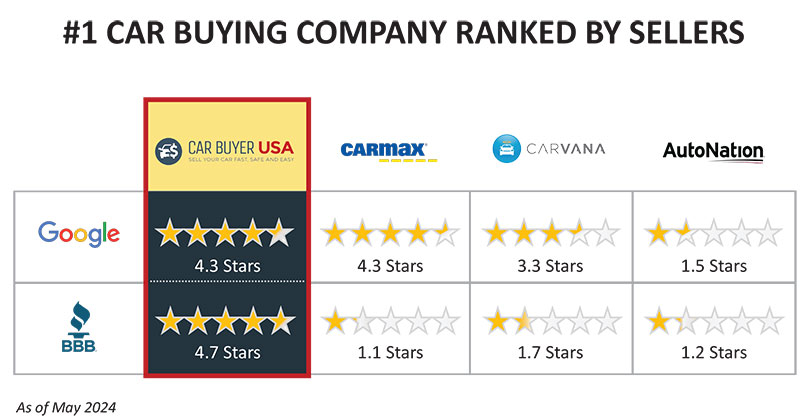
Vehicle value is a major concern for consumers, whether they are buying, selling, or trading in a car. Understanding a vehicle’s worth helps buyers avoid overpaying, ensures sellers get a fair price, and allows trade-in customers to negotiate effectively. Many consumers turn to valuation tools like NADA (National Automobile Dealers Association), Edmunds, and Kelley Blue Book (KBB) because these sources state tjeu provide trusted estimates based on real-world market conditions, but are they truthful and can they really be trusted? We say that’s a BIG NO!
Cars are expensive assets, and making a poor financial decision can cost thousands of dollars. Knowing a car’s fair market value prevents consumers from overpaying for a purchase or getting too little when selling. Many people also take out auto loans, and lenders use vehicle value to determine loan amounts. Consumers want to ensure they don’t end up "underwater," owing more on a loan than their car is worth. When trading in a car at a dealership, consumers want the best possible value. Vehicles are depreciating assets, meaning they lose value over time. Consumers considering new or used car purchases want to understand how quickly a vehicle will lose its worth. Certain makes and models retain value better than others, and valuation tools help consumers make smart choices about long-term car ownership.
In the case of accidents or theft, insurance companies use vehicle valuation data to determine payouts. If an insurer declares a car a total loss, the settlement amount is based on the car’s market value. Consumers want to ensure they receive fair compensation, so they use valuation tools to double-check insurance offers. Also, with the rise of online car sales and private transactions, buyers and sellers need trusted valuation sources to avoid scams. A seller asking too much or a buyer offering too little can indicate a bad deal. Having a reliable price reference protects consumers from fraud.
The widespread use of these valuation websites stems from their reputation, ease of use, and industry recognition. They’ve become go-to resources for buyers and sellers, offering quick estimates based on historical data and dealership reports. However, their pricing models rely heavily on algorithms and past sales figures rather than current market fluctuations. This can create discrepancies, as these tools don’t always factor in real-time trends, local demand, or unique vehicle characteristics.
A vehicle’s actual value isn’t determined by a single database but by a combination of factors, including mileage, condition, location, demand, and recent comparable sales. Pricing guides often use broad data sets rather than specifics about an individual car, leading to outdated or inconsistent estimates. One major limitation of online valuation tools is their one-size-fits-all approach. Every vehicle has a unique history—accident records, maintenance levels, and modifications—all of which can influence its value. For example, a car with exceptionally low mileage and an immaculate interior will be worth more than an identical model with mechanical issues or cosmetic damage. Regional variations also play a role; certain vehicles hold greater value in specific areas due to climate, terrain, or local buyer preferences.
Buyers, too, encounter challenges when relying on valuation sites. The listed estimate may not accurately reflect what a vehicle will sell for in today’s market. Seasonal demand significantly impacts pricing—convertibles command higher prices in the summer, while trucks become more desirable in colder months. Economic conditions, fuel prices, and the release of new models can further shift market dynamics. Depending too much on a single valuation source can lead to unrealistic pricing expectations, missed opportunities, and difficulty negotiating a fair deal. Car Buyer USA is here to guide you through our process and you too can get a value for your vehicle in 20 seconds!
Ultimately, while tools like NADA, KBB, and Edmunds provide a helpful starting point, they shouldn’t be the sole factor in determining a vehicle’s value. Cross-referencing multiple sources, researching current market trends, and considering real-world factors will lead to a more accurate assessment, ensuring both buyers and sellers make informed decisions.


